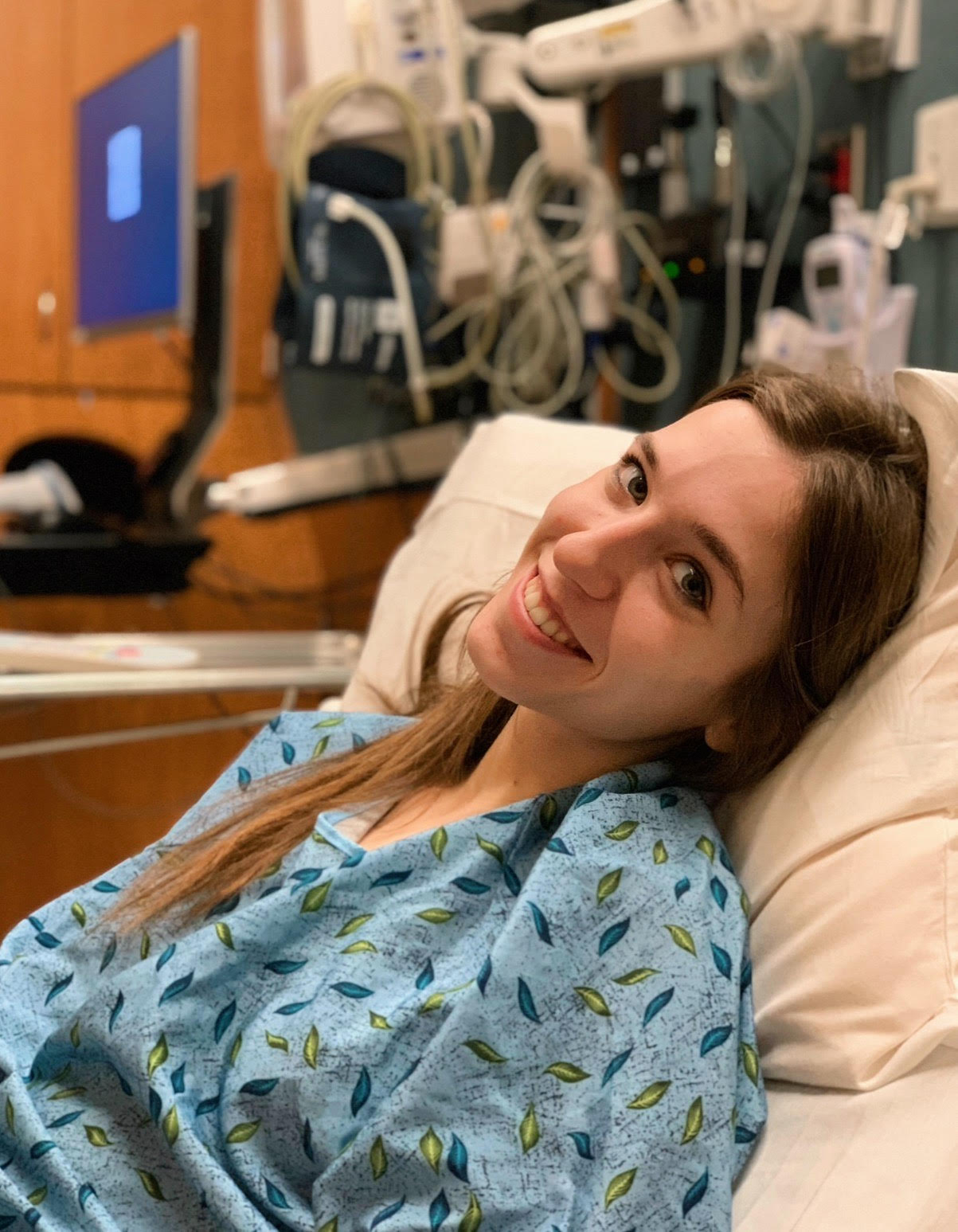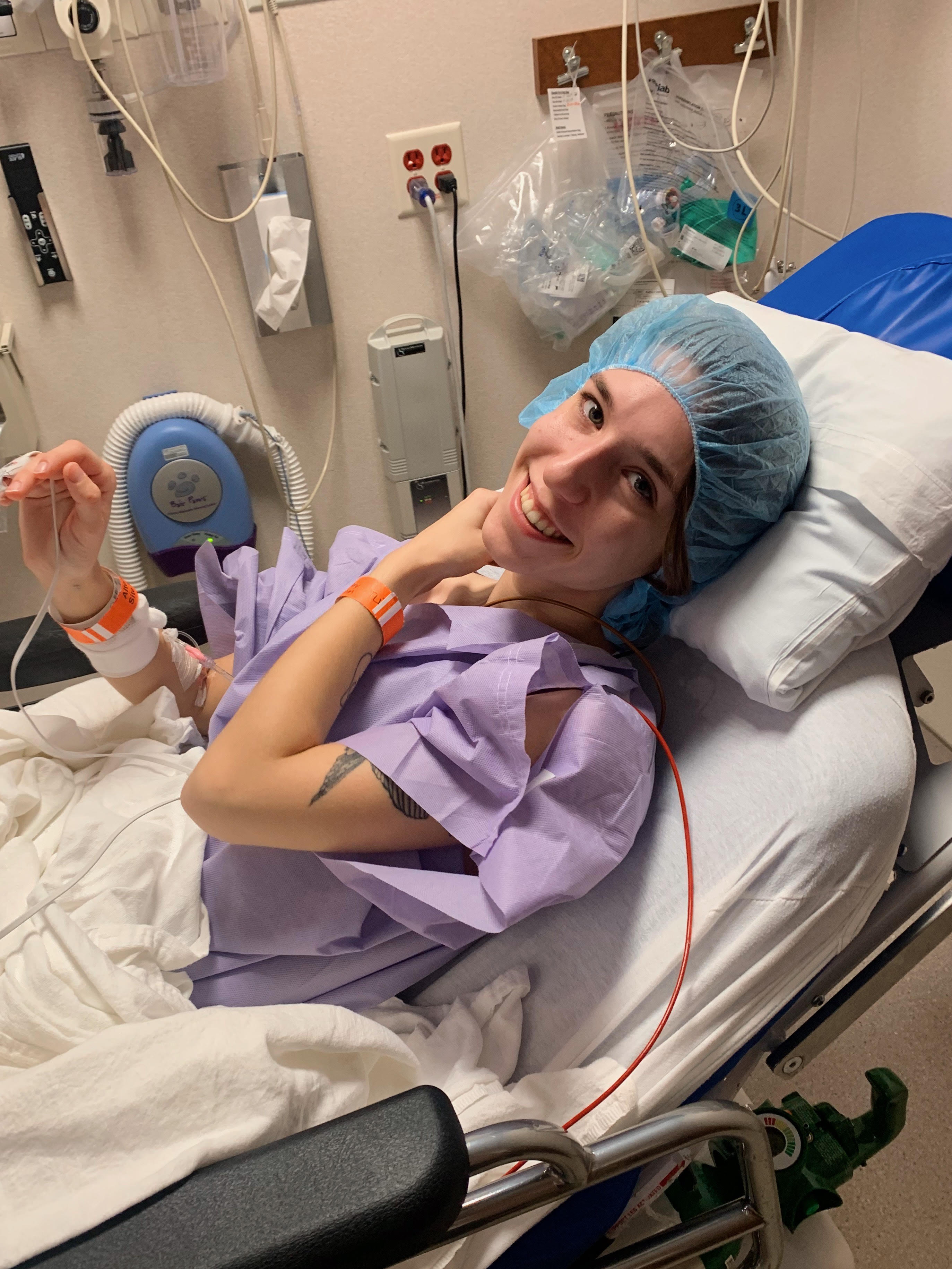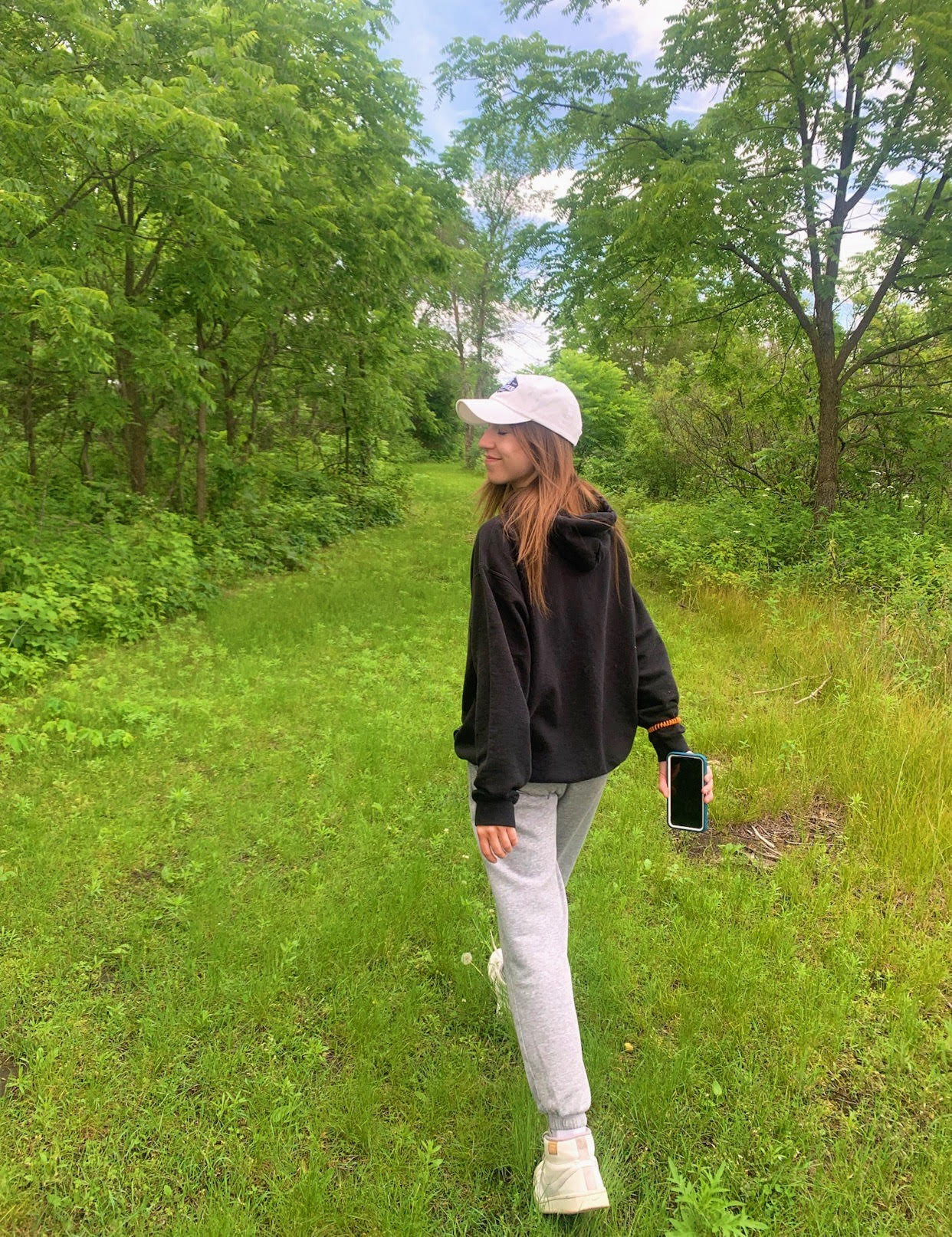Endometriosis: “I thought I would never live another minute pain free again.”
Published 28 Aug 2024 • By Somya Pokharna
Since her early teens, Avery has bravely navigated the challenges of living with stage 4 endometriosis, a condition that has brought severe pain, misdiagnoses, and ineffective treatments into her life, making it anything but easy. Despite these obstacles, she has come into her own as a powerful advocate, using her experiences to raise awareness and support others with endometriosis. Through her advocacy work, particularly on social media, Avery has found strength and connected with a global community of “endo warriors.”
In this interview with Carenity, Avery shares her story of courage, the extremely important role of supportive relationships, and her hopes for a future where endometriosis is better understood and treated.
Join us as we explore Avery's inspiring story.

Hello, Avery! Thank you so much for agreeing to share your story with the Carenity audience.
Could you start by sharing a bit about yourself? We'd love to know more about your background, interests, and hobbies.
My name is Avery Preston, and I’m 21 years old living in Minnesota, USA with my wonderful partner. I’ve loved advocacy work since I was a child and decided to start my journey to become a Licensed Social Worker a few years ago. For the last year and a half, I have used this passion to also begin an advocacy and awareness Instagram page for people struggling with endometriosis and other disabilities, as a stage 4 endo warrior myself. Beyond my advocacy work, I enjoy spending time with family and friends, hiking, playing guitar, and painting.

Can you describe your journey with endometriosis? When did you first notice symptoms, and what led you to seek a diagnosis?
When I got my first period at 13 years old, I started experiencing what I would later find out were endometriosis symptoms. For the next several years, my pain was only during the time of my period and consisted of severe abdominal pain, vomiting, GI issues, and lower back pain. In 2021, my pain became more severe, and I eventually began experiencing pain every single day, all the time. I had surgery in 2023.
How has endometriosis affected your daily life and routines? Could you share some physical and emotional challenges you’ve faced?
When my condition worsened in 2021, I was just beginning my Bachelor’s degree in social work and was working part-time. The pain became so unbearable after about a year, that I had to finish my degree online from home and quit my job. During this time, I also lost 30lbs (13.6 kg) within a 3-month time period and became very weak. It felt very lonely at times being stuck at home and not being strong enough to get out of bed most days. Many of my family and friends didn’t understand, or some even believe, what I was going through. The ones who did made sure I knew it though, and that’s really what helped me to fight for myself.
You mentioned facing difficulties in getting a proper diagnosis and treatment. Can you describe some of the challenges you’ve encountered with the medical community?
When I initially went in for an endometriosis diagnosis, I was 18 years old and knew for sure after hours of my own research that I had it. I saw a male OB-GYN, who told me I probably had an STD instead. I was not sexually active and had just had an STD panel done once I turned 18 just a few months prior, so I knew for a fact I didn’t have one. Still, he told me I likely had one and then did a pelvic exam on me, which does not test for endometriosis. A week went by, and my STD screening came back negative – shocker! I decided to seek out a new OBGYN who diagnosed me based on my symptoms within 20 minutes of the appointment. I was given one option for treatment – birth control, after being on multiple types as a teenager. They put me on Orilissa at the highest dosage, a drug that many providers find extremely unethical to put people on as the side effects are very damaging. My pain only got worse on the pill, and I stayed on it till my OBGYN could perform surgery in March 2023.
After surgery, my OBGYN (who also performed my laparoscopic excision surgery), told my family and I that she removed 100% of my disease and I shouldn’t experience any more pain. Weeks went by, and my pain only grew worse, I knew in my gut that she had lied to us and didn’t remove what she said she did. A couple of months after that, I met with a real endometriosis specialist to review my surgery notes. He explained to my partner and I that my surgeon had lied to us and did not remove my endometriosis like she said she did, essentially getting paid to do a surgery she didn’t actually do. It caused me great emotional stress. I was able to find one of the best endometriosis doctors in the world and travel to them in southern MN to get surgery in November 2023, where he did in fact remove all of my endometriosis and diagnosed endo in places my previous surgeon did not even check. My pain has been much less since then, although I still struggle with heavy debilitating periods and pain during other times of the month sometimes.

What treatments have you tried for managing endometriosis? How effective have they been, and what side effects have you experienced?
I’ve tried several types of oral birth controls, including Orilissa, a medication specifically used for people with endometriosis. It was very ineffective, and I believe it caused my endometriosis to grow and spread more. I had severe bone/joint pain, nausea, vomiting, 10/10 pain most days, hot flashes every 10 minutes, and more. I have treated my symptoms holistically since then by doing things like massage therapy, pelvic floor physical therapy, cleaning up my diet, and meditation/breath work. I also saw a brain-based chiropractor (can be found by going to pxdocs.com) who was helpful for a few months in getting my nervous system back to where it needed to be in order to start properly healing.
How has living with endometriosis impacted your mental health and overall well-being? What strategies do you use to cope with these challenges?
Surprisingly, endometriosis has given me a much better outlook on life. I truly do my best to live every day like it could be my last, because prior to my surgery with a real endo specialist, I was bed bound most days and had little freedom. Even then, though, I did my best to go outside at least once a day and be social when I could. There were definitely dark times and times I felt like I’d be in pain forever. My partner would continue to tell me he knew deep down that my life wouldn’t always be that way, and although it was hard to believe at times, he ended up being right. The support from my partner and the endometriosis community made me feel like I was never alone.
What are some common misconceptions about endometriosis that you wish more people understood?
One of the more common misconceptions about endometriosis is that things like pregnancy or hysterectomy are a “cure” for people with endo. Unfortunately, there is no cure for endometriosis. Pregnancy can actually be very dangerous for some people with severe endo and although a hysterectomy does help some with symptoms, it only removes chances of endo in one specific area. Meaning that for someone like me with stage 4 who has endometriosis growing in several different organs, it wouldn’t help at all.
How important has the support from friends and family been during your journey with endometriosis? What advice would you give to others on how to support loved ones facing similar health challenges?
Support from family and friends is crucial for people with endo, as it is an incredibly isolating and often times lonely disease. Many of us have so much pain that we can’t do basic things like work or go to school. Having friends and family to lift you up, even just providing emotional support, makes such a huge difference. Here are some ways you can support your partner, friend, or family member with endometriosis: ask to attend appointments with them; educate yourself on endometriosis and its symptoms; watch Below the Belt to better understand how endo affects people; make/prep meals; help keep their living space clean, which in turn also helps with mental health problems caused by endometriosis; buy things like heating pads, cramp creams, etc., that can help them with pain management; and more!
You also found support and community through online endo warriors and your Instagram page. How has connecting with others online influenced your journey with endometriosis, and what kind of impact has your advocacy had on others?
I have loved every second of advocating for endometriosis awareness and education through social media. It has helped me to become stronger and has given me the opportunity to connect with so many people in my position, as well as make friends with some really cool people. I often get messages from people all over the world wondering how to get in touch with a real endometriosis specialist, asking how to prepare for surgery, questioning whether they have endometriosis, etc. I always try to send multiple resources to these people, so they have multiple options in their care. It brings me a lot of joy to think about the people I’m able to help through my page, because I needed that when I was beginning my own diagnosis journey.
What are your hopes and aspirations for the future, both personally and for the wider community affected by endometriosis? Do you have any advice or encouragement for others dealing with similar challenges?
I’m currently working towards obtaining my Licence in Social Work and am hoping that one of the ways I use my licence is to continue helping and advocating for people with endometriosis. My hope for the endometriosis community and our future is that someday soon we will at least know the cause of endometriosis and that at some point in my lifetime, someone will find a cure for us. My biggest piece of advice for other endo warriors, is to never give up. I know how cliché it is, but there was a time in my life where I thought I would never live another minute pain free again. And although I still struggle with high pain days and horrible endometriosis symptoms at times, I no longer live in pain every second of every day. Life does get better.

A big thank you to Avery for this interview!
Don’t forget to check out her Instagram page: @endometriosisave.
Did you find this story helpful?
Click Like and share your thoughts and questions with the community in the comments below!
Take care of yourself!

 Facebook
Facebook Twitter
Twitter

